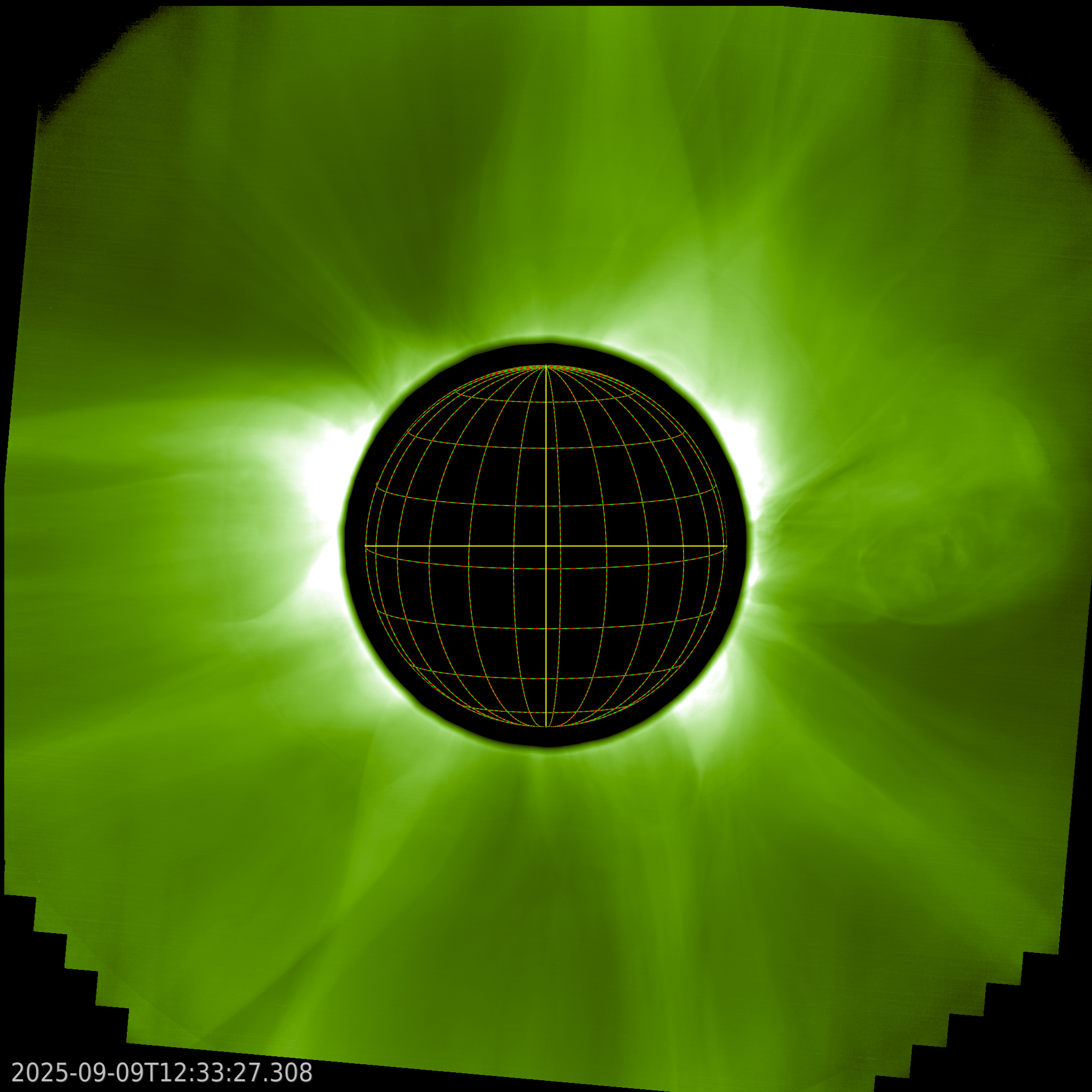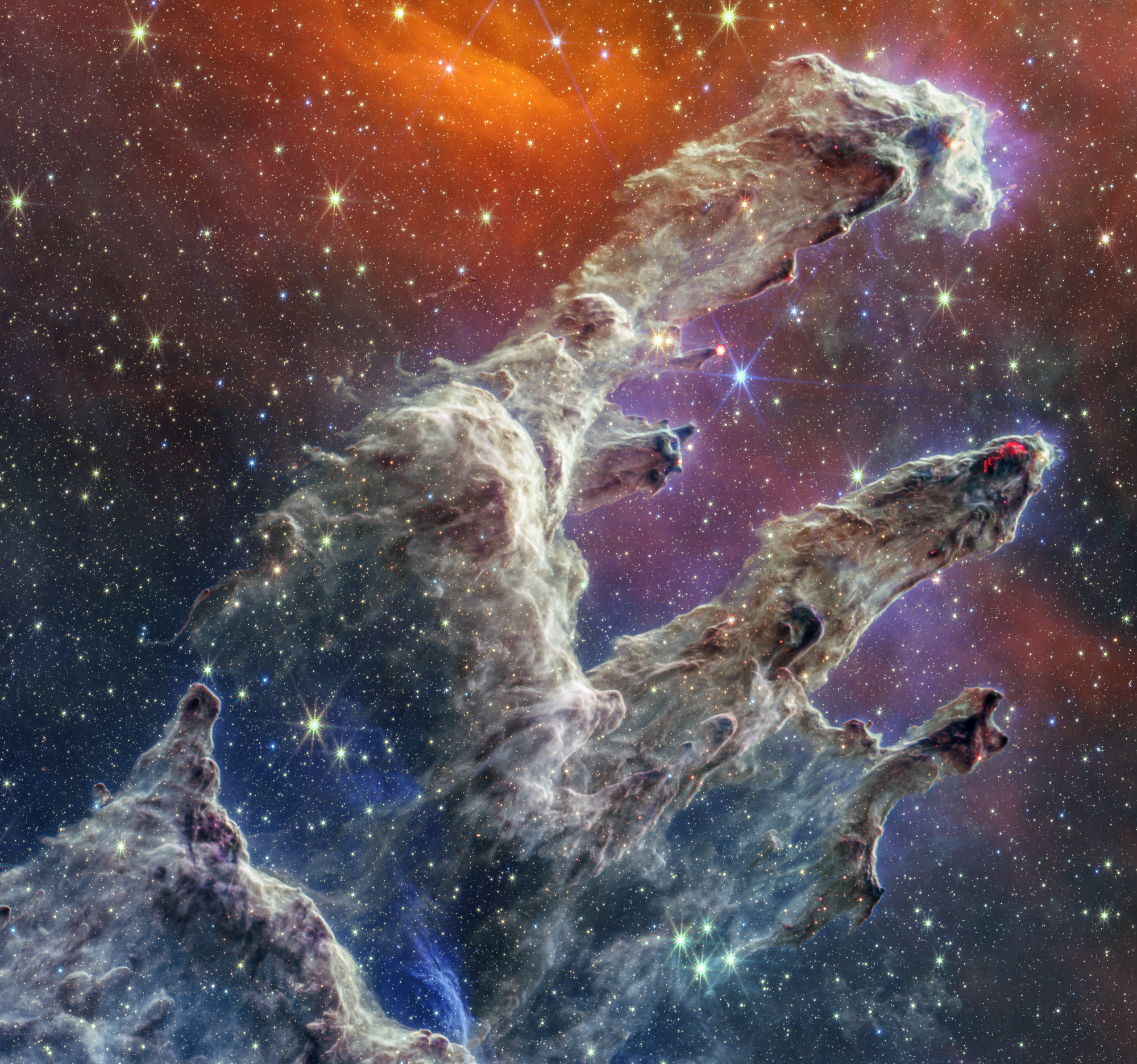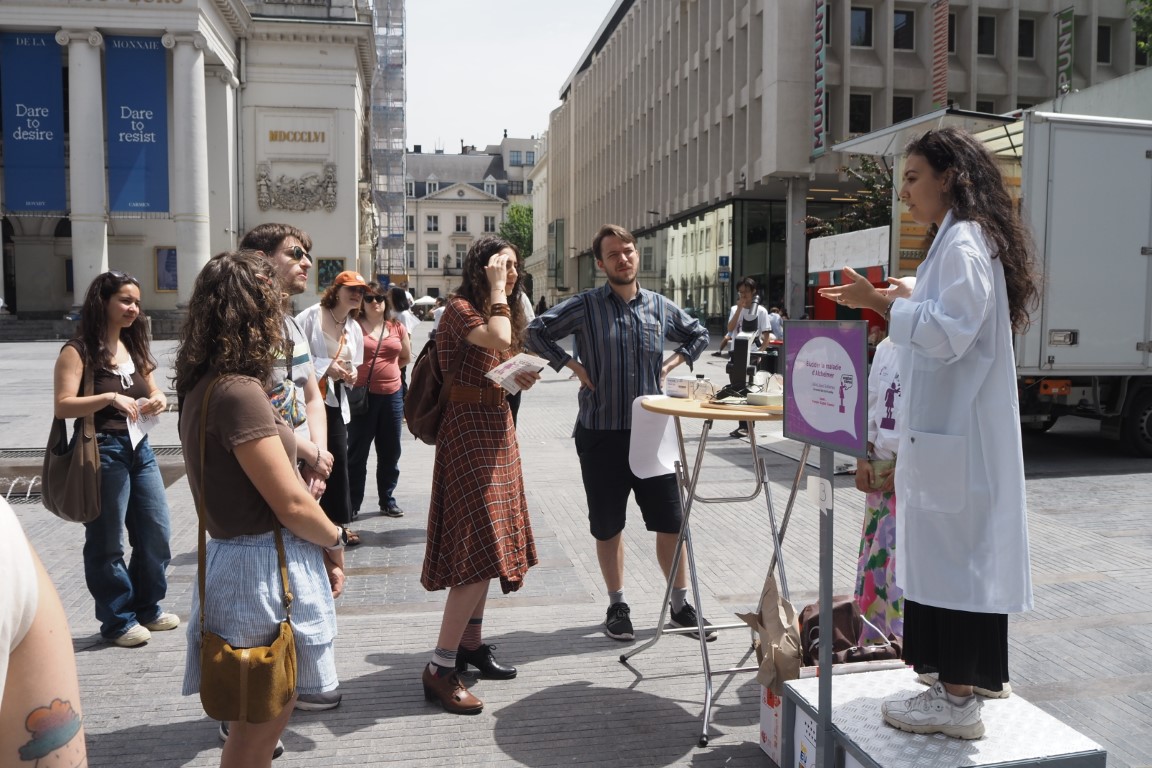Seismic Activity in/around Belgium in 2025
In 2025, 137 earthquakes were located by the Royal Observatory of Belgium in or near Belgium. On Belgian territory, no earthquake was large enough to have been felt. [...]
In 2025, 137 earthquakes were located by the Royal Observatory of Belgium in or near Belgium. On Belgian territory, no earthquake was large enough to have been felt. [...]

December 5, 2024 – 1 year ago, the duo satellite Proba-3 left Earth to head to space. The telescope ASPIICS, whose task is to make perfect total solar eclipses from space, was onboard. The launch went flawless.
December 5, 2025 – exactly 1 year later, ASPIICS has already delivered a wealth of amazing pictures of the solar atmosphere close to its [...]

Brussels, 3 December 2025 – By measuring the rate at which young stars grow, astronomers discovered that contrary to earlier expectations, young stars appear to grow much faster in the later stages of their formation than at the onset. So, much like humans, intermediate mass stars undergo a growth spurt and have a voracious appetite during their adolescence. This finding, reported by [...]
November 12, 2025, very early in the morning. Colleagues from the STCE, the Belgian Space Weather Centre, admired the northern lights from their terrace in Brussels and are amazed by the show of colours. After all, it is quite exceptional to be able to observe this phenomenon in Belgium (let alone in the middle of a city with a lot [...]

Tuesday, September 30, 2025, marked the beginning of a 3-day workshop gathering international members from the BELA and MORE experiments onboard the BepiColombo mission to Mercury. [...]
On 26 September 2025, come to the free WiseNight festival at the Planetarium of the Royal Observatory of Belgium. [...]

The NASA/ESA/CSA James Webb Space Telescope has revealed new details in the core of the Butterfly Nebula, NGC 6302. From the dense, dusty torus that surrounds the star hidden at the centre of the nebula to its outflowing jets, the Webb observations reveal many new discoveries that paint a never-before-seen portrait of a dynamic and structured planetary nebula. Those new [...]

The 11th Science Working Team meeting of the ESA Proba-3 mission recently took place at Royal Observatory of Belgium (ROB). The world’s top experts on coronagraphy, the technique to observe the solar corona by blocking the light of the solar disk, like during a total eclipse, met there for three days. Our colleague Andrei Zhukov, the principal investigator of the [...]
New findings from the European Space Agency’s Solar Orbiter spacecraft reveal that even the tiniest bursts of activity from the Sun may behave like their larger counterparts.
The Sun constantly produces tiny flashes of extreme ultraviolet (EUV) emission in its outer atmosphere, known as the corona. These flashes, called EUV brightenings, are small, short-lived bursts of energy that appear all over [...]

On Saturday 28 June 2025, from 2 p.m. to 5 p.m., twelve female researchers from all over Belgium will be sharing their passion and knowledge in a fun and accessible way at the Carrefour de l’Europe/Europakruispunt. [...]